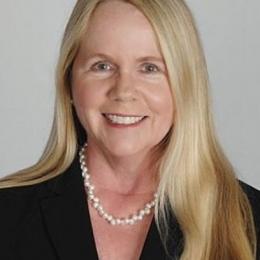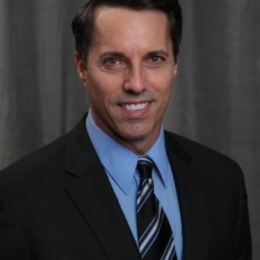The “Well-being During the Pandemic” series is a follow-up to the “Say Yes to Well-being: How Daily Incremental Changes Can Transform our Lives” feature in the April 2020 ACC Docket. In the original article, the authors encouraged readers to incorporate daily incremental changes to create true, lifelong well-being with these six steps:
- Inquire about your workplace resources;
- Find time to be quiet;
- Focus on physical health daily;
- Value meaningful connections;
- Establish priorities and boundaries; and
- Know it’s OK to ask for help.
In this series, the authors focus on and analyze each of these topics to see how we can use them to support our well-being as the COVID-19 pandemic persists.
Let’s be honest, 2020 was exhausting! We were tested at work and at home in ways we didn’t think were possible. Our minds were fatigued, and our emotions were on the edge as we navigated through the COVID-19 pandemic without our usual in-person support and well-being resources.
Yet, while we were fighting our personal battles, our clients were expecting us to be on top of our game — advising them how to manage through the pandemic and all of the challenges that came with it. Employee and customer safety, financial challenges, compliance with new and ever-changing COVID-related federal, state, and local requirements, supplier relations, COVID-related litigation — all on top of our regular jobs.
Well, yes, 2020 is behind us, but many of the challenges of 2020 persist. Many children are still attending school remotely, the pandemic continues, and we are expected to deliver even more with less resources at work. Of course, this increases our stress level and often creates a sense of helplessness.
Let’s first take a deep breath; then another one and one more. Remember, you are not alone; we are truly in this together and will support each other. Although our experiences are not all the same and the challenges we face differ, possibly for the first time ever in our lifetime, we are able to relate to just about anyone in the world as we all struggle to overcome the COVID-19 pandemic together.
On a deeply human and existential level, many of us are going through similar experiences. Most of us are struggling in some way — at home or at work — physically, mentally, or emotionally.
You may say, “Well, thank you for stating the obvious, but where do we go from here?” How do we move forward from this difficult time and reemerge more resilient?
You don't have to be a superhero
“How have you been?”
“Good. Busy. Taking it day by day.” Maybe even “Great. Things have been hectic but great. No complaints.”
Typical exchange, right? The colleague or friend checks the box by asking, and we have a pre-programmed response designed to prevent concern or further questioning. It is a typical, automated response.
Let’s pause, though. For many of us, our response to these questions is a lie. We are not great and, if we are being truthful, we are not even OK. Our world feels to be seeping through our hands like sand, and we can’t seem to stop that. Yet, we would never reveal how we feel to others.
After all, we are attorneys; we are expected to protect and support others. We are trusted advisors and defenders who cannot be seen as weak, vulnerable, or defeated. We fear that admitting weakness publicly — or even privately in a small setting — would be devastating to one’s career and future success prospects. We have been conditioned to stay strong, no matter what.
But you don’t always have to be a superhero for work or your family. Like there are different ways to view the same fact pattern presented at a trial, you need to reassess the way in which you are evaluating your well-being. Admitting that you are NOT OK and can use help is a sign of strength, not of weakness. It’s OK to ask for help. It’s OK to reach out. It’s OK to hit pause and be honest about where you are and what you need.
Help is available, and it's OK to ask for help
While many are focusing on and proudly announcing their resolutions around health and wellness, some of us are struggling with getting out of bed in the morning, anger issues, depression, major life (including work) dissatisfaction, substance abuse issues, other unhealthy addictions, and perhaps even suicidal thoughts.
Please know, you have never been alone; you just need to let people in. There is help out there. Resources and people who stand ready to support you — in small and big ways. If you feel like you are losing ground from underneath you, please reach out to someone to have a conversation, share your experiences, and seek support.
IRAC method
As a throwback to law school, let’s use the IRAC method to discuss the importance of asking for help. As a refresher, we will:
- Identify the issue;
- Apply the relevant rule;
- Conduct an analysis; and
- Ultimately reach a conclusion.
Issue
Today’s daily pressures are significantly more complex and unsettling than they were pre-COVID.
How can I keep my family and myself safe and healthy? How can I best protect my elderly parents from this virus? How do I cope with a sudden loss of my best friend? Are my kids OK and getting what they need with virtual schooling? What if I lose my job and no longer can support my family? Will my marriage survive these shutdowns? How can I move forward when there is so much unrest in my country?
Maybe you feel lonely, scared, tired, panicked, or defeated. You may feel the uncertainty of today and the future.
Perhaps the heavy burdens you are carrying are becoming too hard to bear and the temporary fixes (alcohol or other unhealthy addictions) no longer work and only drag you further down.
Rule
We, as attorneys, see ourselves as problem-solvers, solution-deliverers, risk-preventers, and confidence-installers. Our clients, families, and communities look up to us and turn to us in challenging times. We are expected to deliver every time and know how to solve every problem. When others rely on us, how can we be weak and show vulnerability?
What is preventing you from seeking help? Fear of ruining your reputation or destroying the legacy you’ve built? Is it shame or the belief that you can do this alone?
Opening up about our problems to others is not natural to us. In fact, we believe it may damage how others see us and undermine our influence and authority. We would much rather suffer in silence and drown in our addictions than open up to anyone — our spouse, friend, psychologist, or employer.
The general rule is that we carry our burdens alone, while putting on a fake smile and responding to “How have you been?” by saying “Great. Things have been hectic but great. No complaints.”
Analysis
Studies we discussed in our “Say Yes to Well-being: How Daily Incremental Changes Can Transform our Lives” article underscore how many in the legal profession are suffering and are turning to unhealthy coping mechanisms.
Stress, anxiety, depression, unhealthy addictions, and suicide are more common in legal profession than we care to admit. Please note those studies were done before 2020. Since March 2020, our daily burdens have increased exponentially, likely contributing to our mental and emotional tolls.
It’s time to disrupt our belief that we have to do this alone. Yes, we are attorneys, but we are also humans with limits who need support from other people. We were not meant to do this alone. Reaching out to someone for help is not a sign of weakness; on the contrary, it’s a sign of strength and emotional maturity. Reaching out is not looked down upon. It is acceptable, and it is expected.
Our families, employers, clients, and communities need us to be in good mental health, and we owe it to them — and to ourselves — to seek assistance when we no longer can deal with our challenges alone. We urge you to overcome your preconceived notions and find inner strength to reach out for help.
Conclusion
When you are ready to make the first steps to seek help, please know there are many options available to you:
- Your family and friends: Don’t underestimate how helpful a conversation with your spouse or partner, another family member, friend, or neighbor can be. Often, simply opening up to someone you trust and talking through your challenges and struggles can be very helpful and can lead to additional support and accountability.
- Your workplace: Your employer likely has resources you can use — whether it’s well-being training, access to counseling, or employee assistance program. Check in with your benefits department to learn what’s available to you and whether participation in these programs can be confidential.
- Your healthcare provider: Consider mentioning your concerns and feelings to your medical provider.
- Your bar association: Your bar association is an excellent resource to find solutions for dealing with substance abuse and mental health issues. They are best positioned to understand what you may be going through and have access to tested resources. Plus, they may be able to help find mentors and “support buddies” who can walk with you through your challenges in a confidential setting. Find a link to your state bar association’s lawyer assistance program at ACC In-House Wellness & Support | Association of Corporate Counsel (ACC).
A crisis counselor: Text HOME to 741-741. 24/7.
The Suicide Prevention Lifeline: Call 1-800-273-TALK(8255). 24/7 in English and Spanish.
Crisis Text Line International
United Kingdom – Text HOME to 85258
Ireland – Text HOME to 50808
More you can do
Want to help? Learn more about this? Support a colleague? Consider doing the following:
- Check out the American Bar Association’s “Fear Not: Speaking Out to End Stigma” video and share it with your colleagues, your attorney network, your legal department leadership, and your outside counsel. This will start the conversation.
- Educate yourself about the warning signs of a mental illness at Know the Warning Signs | NAMI: National Alliance on Mental Illness.
- Learn about the warning signs of suicide at NIMH » Warning Signs of Suicide (nih.gov).
- Be proactive by asking your colleagues the “Are you OK?” question. Don’t let people you care about suffer alone. You just may help save someone’s life. Read about #stopmindingyourownbusiness at www.stopmindingyourownbusiness.org.
Parting thoughts
In mid-January 2021, the media reported that four Kentucky attorneys were lost to suicide since Christmas 2020. This is heartbreaking as four more people were gone prematurely. And that’s just in one state in three weeks. Questions immediately arose, including “Why did this happen?” “Why wasn’t this prevented?” “Didn’t others see the signs?” and “What can be done to prevent another loss?”
In response to this news coverage, which was followed by the statement from the president of the Kentucky Bar Association, many attorneys commented on social media about their struggles and challenges, about how lonely they feel, and that they have recently considered suicide too. There was an outpouring of support — invitations to have a phone chat, sharing of resources, and just simple reminders that we are needed and loved in this world.
This world needs you. Here and well. There is a reason you are here. You are loved. And there are numerous people who stand ready to walk with you on your journey.
You don’t have to carry your burdens alone. Help is readily available. Please ask for it!






